I am constantly contending that it took two centuries of Provence and one of Tuscany to develop the media of Dante's masterwok.
The Supreme Poet and symbol of Italian culture worldwide
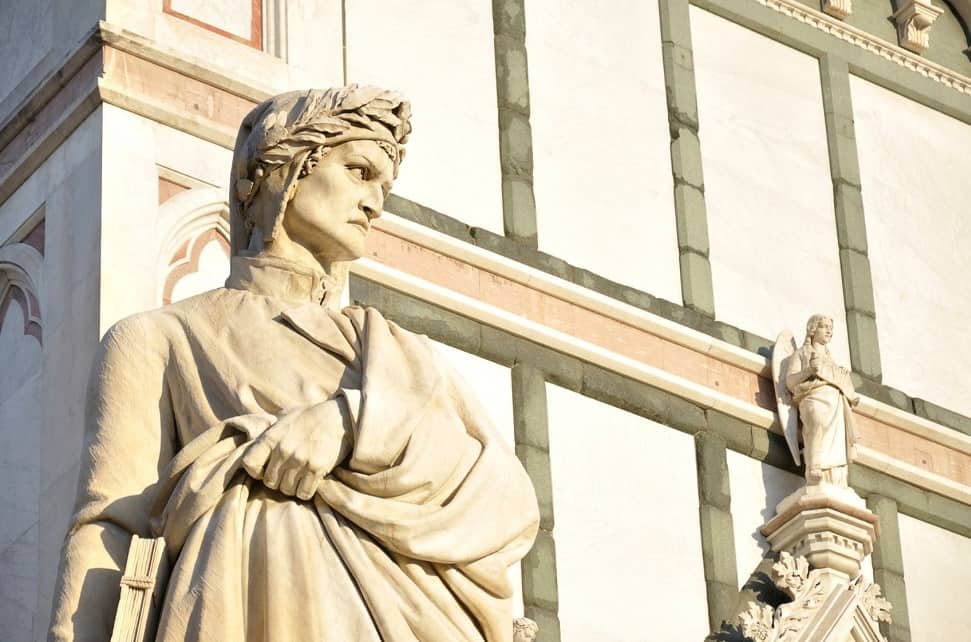
The 700th anniversary of Dante Alighieri's death is undoubtly one of the most important events in 2021.
Durante di Alighiero Degli Alighieri, commonly known as Dante Alighieri or simply Dante, was born to a family of lesser nobility in Florence in 1265 (presumably between May and June), and died in Ravenna in 1321 (during his exile), exactly on the night of 13 to 14 September.
Universally recognised as the "Supreme Poet", he is the real expression of medieval culture as well as a man of great cultural importance at global level. Indeed, Dante was not only a man of letters, a poet and a writer, but also a linguist, a scholar of theology and philosophy and a politician who profoundly influenced the Italian language and literature and, without any doubt, the entire Western culture with his work and his own life.
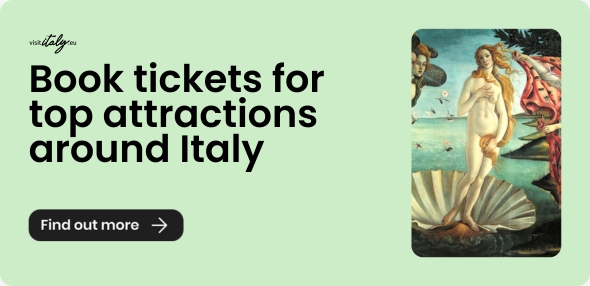
The Father of the Italian Language
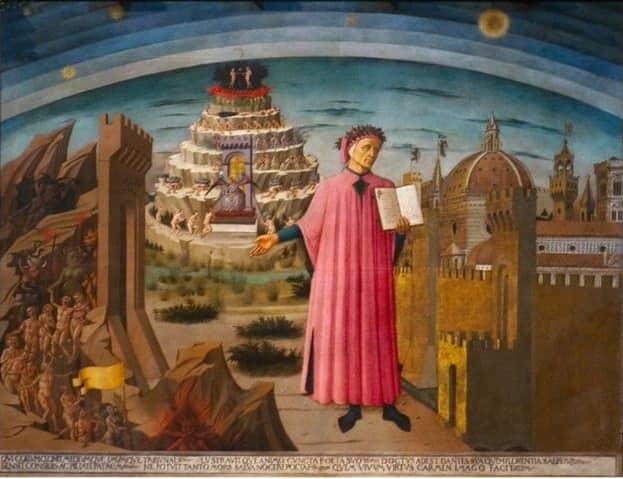
He played a crucial role in the affirmation of the Italian language and that is the reason why he was considered the "Father of the Italian Language". At the time of Dante, Latin was considered the perfect language par excellence, in stark contrast to the new languages derived from it which were considered inferior and worthless. On the other hand, Dante stated without hesitation that vulgar Italian had the same value as Latin and that there was no impediment to use it for literary works.
And that is exactly what he did, giving birth to the Divina Commedia written in his mother tongue, the 14th century Florentine language. The Divine Comedy, the most famous work of Italian literature, was translated into many languages and even today it is the most studied and commented poetic-literary text in the world. Furthermore, the poem is recognised for its universal character, since the poet, through his journey of redemption, is not only addressing his contemporaries, but the whole mankind and future generations. Dante did something unique and unprecedented: he gave dignity to the Italian language.
With a spectacular skill, Dante changes from a courtly register to very low-level expressions, playing with a language that, after the success of the Divine Comedy and with the necessary transformations, became the basis of modern Italian. It is estimated that about 90% of the fundamental vocabulary in use today was already present in the poem. Dante nourished and enriched the Italian language with specialist terminology from astronomy, philosophy and morality, laying the foundations for a higher-ranking intellectual lexicon. He set up and strengthened the syntax in such a way as to make Italian capable of complex and articulate argumentation, elevating it to a language of culture that could one day replace Latin itself.
Dante, the Man and the Poet. His major works
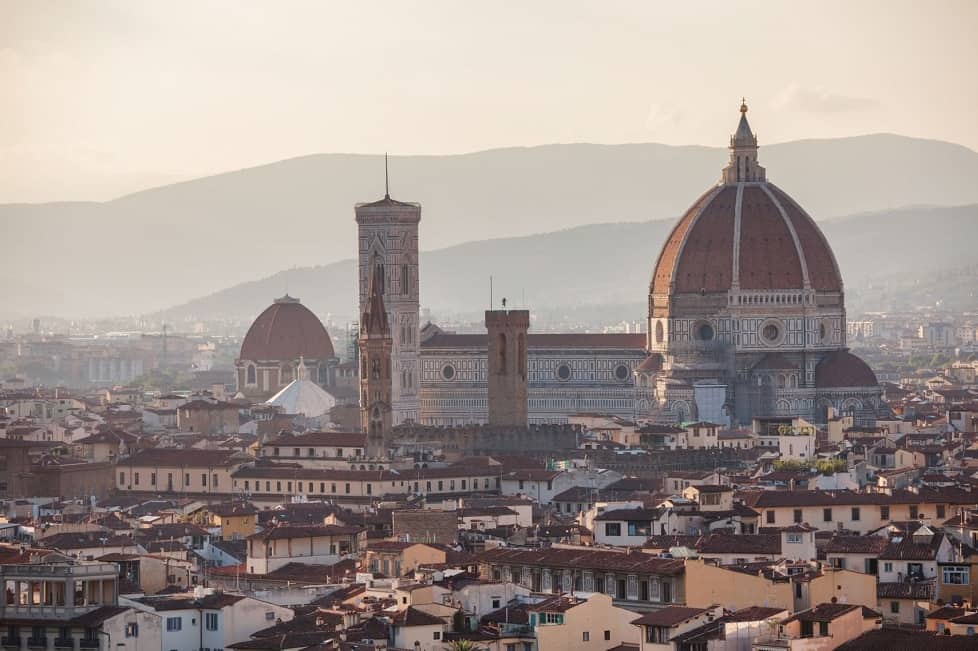
Since it would be impossible to enclose Dante and the context in which he lived in a few words, we will briefly describe the fundamental aspects of Dante as a man and Dante as a poet, two roles that were closely linked for the reality of that time.
Medieval Florence, where he lived, was a rather complex reality, internally racked by continuous internal struggles between Guelphs and Ghibellines, which saw our Supreme Poet as a protagonist. Dante's civil and political commitment and rivalry relations with Pope Boniface VIII were the leitmotif of his entire existence and also deeply impregnated his works. Due to political games, he was forced to abandon his beloved city and to live out the rest of his days in Ravenna, where he died.
His major works include:
- Vita Nova: an early work written in Vulgar (1292-1295) focused on his love for Beatrice, a woman idealised by the poet, who speaks of his beloved as no one had ever done before.
- Convivio: a philosophical essay composed between 1304 and 1307 in Vulgar to enable everyone to approach the culture of the intellectuals. Unfinished work.
- Rime: a work collecting all the poems not included in the Vita Nova and the Convivio, starting from his youthful production to his mature years. It is a very heterogeneous complex, collected, reordered and structured by modern critics in successive eras.
- De Vulgari Eloquentia (The Eloquence of the Vulgar Language): treatise written in Latin and addressed to intellectuals, in which Dante extols the Vulgar language and dictates the rules of writing in Vulgar. Unfinished work dated between 1303 and 1305.
- De Monarchia: political essay in Latin in which Dante affirms the need for temporal power to reside within the empire and not within ecclesiastical power. According to the poet, the Monarchy is the only form of government capable of ensuring peace and security. The date of its composition is uncertain: according to the various theories of the Dante scholars, it presumably dates from between 1308 and 1321.
Dante's masterpiece is undoubtedly the Divine Comedy, a poem divided into three canticles (Hell, Purgatory, Paradise) that symbolises the afterlife journey of redemption undertaken by the poet. It is an itinerary rich in multiple meanings, especially regarding the historical conditions of Dante and his time of a literary-religious nature, an encounter with numerous historical or fictional characters. An invaluable and unparalleled masterpiece, which encapsulates in a unicum his political, spiritual and poetic experience.
25th of March, officially recognised as Dante's day
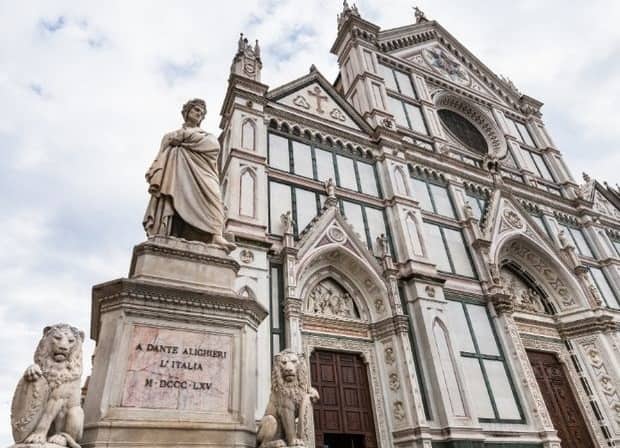
According to the most famous Dante scholars, Dante began his descent into Hell on 25 March 1300. Very famous the incipit of the poem "When I had journeyed half of our life's way, I found myself within a shadowed forest, for I had lost the path that does not stray“.
This date officially became the Dantedì (literally Dante’s Day) in 2020, by will of Italian Culture Minister Franceschini. The calendar, for both Dante's Day and the celebration of the 700th anniversary of his death, is full of events and initiatives that will take place throughout Italy over the coming months and throughout 2021.
Due to the emergency situation caused by the covid-19 some events may be subject to changes and cancellation, so we recommend to consult and check the details and updates of the corresponding programmes.
Webcasts, conferences and numerous events are planned for 25 March.
At 12 noon, we are all called to the "appointment with Dante". The Ministry of Education invites students, teachers and every single Italian citizen to read Dante to rediscover together the beauty of this work and share a symbol of Italianness even during such a critical moment due to the pandemic.
In addition, the day of 25 March will be full of celebrations and digital events through readings and initiatives dedicated to the Supreme Poet with the official hashtags #Dantedì and #IoleggoDante.
Synergically, the Ministry of Education and the Ministry of Cultural Heritage and Activities and Tourism, with the precious collaboration of museums, schools, archaeological sites and libraries will offer numerous contents (images, videos, etc.) to tell Dante through their social accounts.
Finally, RAI (Italian national public broadcasting company) will also be an active part of Dante's Day, offering us the lecture Dantis (the reading of Dantes' works) interpreted by various artists and dedicating a large part of its programmes to this extremely important day for Italian culture.
The whole of 2021 will be full of events and celebrations throughout Italy, especially in the cities where the Poet lived or travelled during his lifetime: Florence, Ravenna, Verona, Rome, Pisa, Arezzo, Bologna, Forlì... Stay tuned!
About the author
Written on 12/03/2021

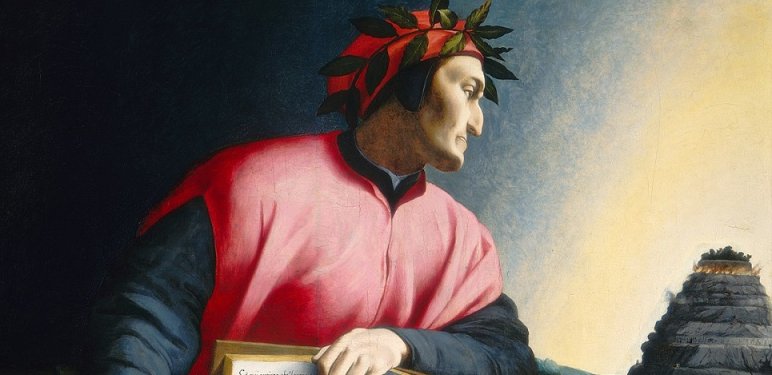

Alessandra Festa
This year marks the 700th anniversary of the death of Dante, symbol and icon of Italian culture in the world.